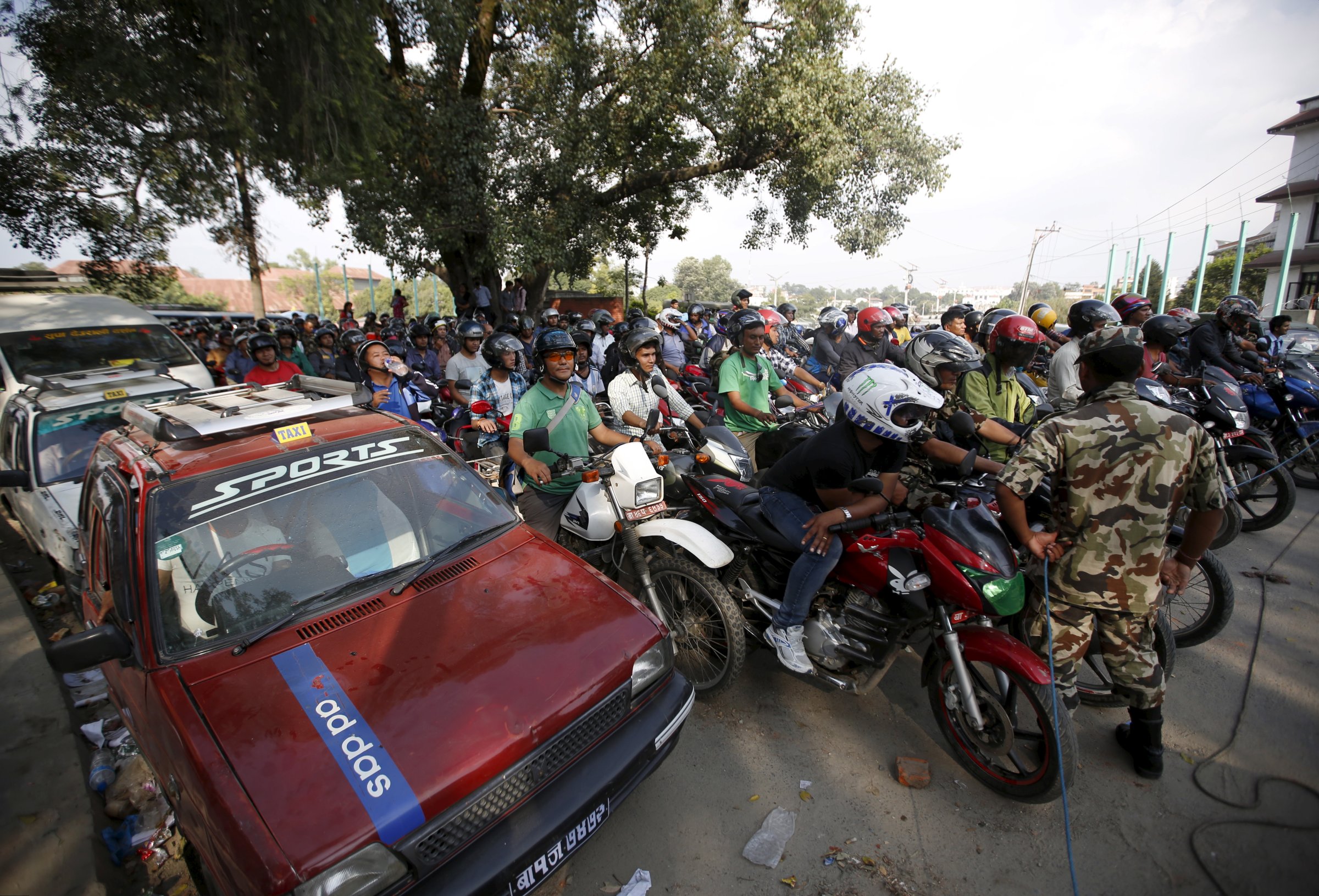
Massive protests and a diplomatic confrontation between India and Nepal over the latter’s new constitution has resulted in trucks carrying goods and fuel from India to halt at various checkpoints at the Nepalese border, forcing the earthquake-ravaged nation to ration fuel amid growing fears of a shortage.
On Sept. 20, the constitution of Nepal came into effect after a political quagmire that lasted nearly a decade — a move that prompted mass demonstrations that have so far led to more than 40 deaths, according to Reuters. New Delhi has also complained about the inequality the document afforded to certain minority groups in Nepal that predominantly live near the nations’ shared frontier.
Indian trucks have stopped entering Nepal ostensibly because of security concerns amid the simmering unrest, though many Nepalis accuse India of imposing a blockade in order to put pressure on its northern neighbor, and an effigy of Indian Prime Minister Narendra Modi was reportedly set ablaze amid anti-India protests in Kathmandu on Monday. Faced with fears that fuel could run out within a matter of weeks, the Nepalese government has begun rationing gasoline and introduced a quota system for all vehicles.
According to Swarnim Wagle, a member of the Nepal National Planning Commission, the shortage of essential supplies will soon prove crippling. The landlocked Himalayan nation’s dependence on imports from India has increased after April’s 7.8-magnitude earthquake, which killed some 9,000 people and blocked alternative supply routes from China. “We understand the Indian view that because of security issue they cannot allow the trucks to pass,” says Wagle. “The [Nepal] government’s view is that once they come to the Nepal side, security forces will escort them inside.”
India’s Foreign Ministry has denied the presence of a blockade at the border checkpoints. “The reported obstructions are due to unrest, protests and demonstrations on the Nepalese side, by sections of their population,” said a statement issued on its website on Sept. 25.
Kamlesh Kumar, the assistant commissioner of customs at the Indian border town of Raxaul, says some 300 or 400 protesters have made a human chain and are sitting on the Nepal side, blocking access and creating a security issue for Indian exporters. Raxaul and its corresponding Nepalese post, Birganj, form one of the border openings that have been closed for the past five days. “Around 1,000 trucks are waiting for clearance at the customs check point,” adds Kumar.
Nepal’s Madhesi and Tharu communities claim that the new constitution does not afford them equal rights nor representation in government.
More Must-Reads from TIME
- How Donald Trump Won
- The Best Inventions of 2024
- Why Sleep Is the Key to Living Longer
- Robert Zemeckis Just Wants to Move You
- How to Break 8 Toxic Communication Habits
- Nicola Coughlan Bet on Herself—And Won
- Why Vinegar Is So Good for You
- Meet TIME's Newest Class of Next Generation Leaders
Contact us at letters@time.com